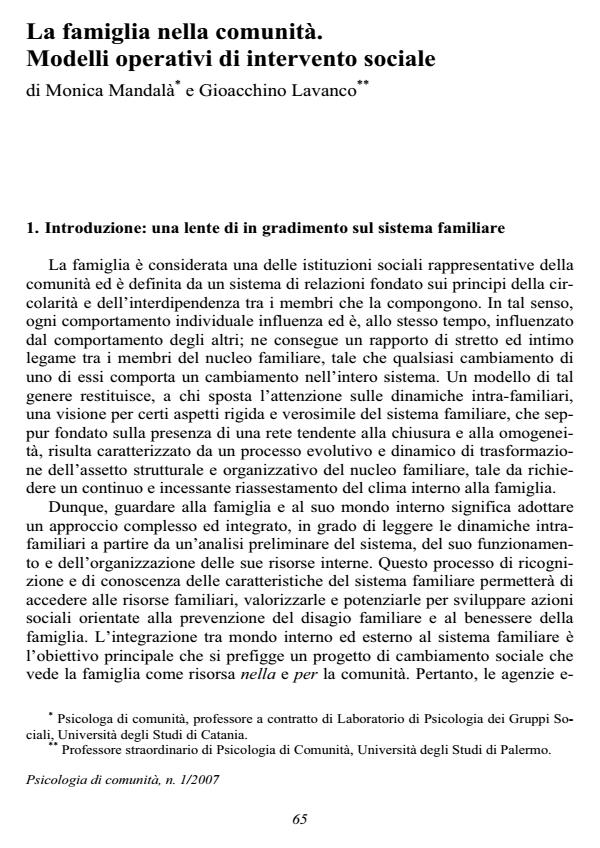La famiglia nella comunità. Modelli operativi di intervento sociale
Journal title PSICOLOGIA DI COMUNITA’
Author/s Monica Mandalà, Gioacchino Lavanco
Publishing Year 2007 Issue 2007/1 Language Italian
Pages 17 P. 65-81 File size 77 KB
DOI
DOI is like a bar code for intellectual property: to have more infomation
click here
Below, you can see the article first page
If you want to buy this article in PDF format, you can do it, following the instructions to buy download credits

FrancoAngeli is member of Publishers International Linking Association, Inc (PILA), a not-for-profit association which run the CrossRef service enabling links to and from online scholarly content.
Family is a social institution which is representative of the community and characterized by interdependent relationships among its members. In this sense, the approach towards family issues has to be complex and integrated, founded on a preliminary analysis of the system within its life context. Integration between familiar system’s inner and outer world is the main goal of a social change project, conceiving family as a resource inside and in favor of the community. The idea is that of creating spaces of negotiation and dialogue among the main actors of the family and its community, working together to reach higher and higher levels of life quality. Network, family and community integrate within social intervention as active elements, and find expression in the policies of person-centered services. From this perspective, school, family, local government and services promote solidarity paths, increase the value of the resources existing in the local community and share values and norms regulating its life. Doing so, individual, community and context are inscribed into a system based on the concept of network, as a key to support the local/global transition of the whole community. Keywords: family, community, network, participation, change
Monica Mandalà, Gioacchino Lavanco, La famiglia nella comunità. Modelli operativi di intervento sociale in "PSICOLOGIA DI COMUNITA’" 1/2007, pp 65-81, DOI: